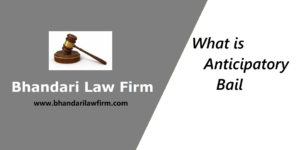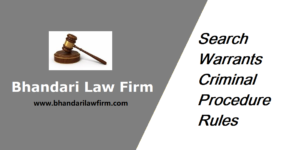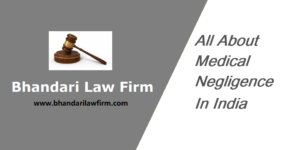Court Marriage Under Special Marriage Act in Chandigarh Punjab and Haryana
To the legal fraternity, there exists nothing like a court marriage. When a layperson addresses them with the concept of Court Marriages, it is then that they realize that reference is being made to the marriage taking place under the provisions of the Special Marriage Act, 1954. The blame of the conception of court marriages may be had to the films and stories where the hero and heroine go to the registrar’s office and get married at the moment. In reality, the process is rather an elongated one, with documents to be given and a procedure to be followed. It is not as easy as barging into an office and making a signature which leads to being declaring you to be married. Court Marriage Special Marriage Chandigarh Punjab Haryana
It must be noted that any person whose marriage is solemnized under this Act shall have the same rights and shall be subject to the same disabilities in regard to the right of succession to any property as a person to whom The Caste Disabilities Removal Act, 1850 (21 of 1850), applies. Court Marriage Special Marriage Chandigarh Punjab Haryana
Conditions Precedent: Court Marriage Special Marriage Chandigarh Punjab Haryana
Even before you go into a registrar’s office to get married, it must be satisfied that both the bride and bridegroom satisfy the requirements as laid down in the Special Marriage Act. These prerequisites are as laid down in section 4. The conditions briefly are as follows: Court Marriage Special Marriage Chandigarh Punjab Haryana
- Monogamy: Neither party must be having a spouse living. Bigamy is punishable under Section 44 of the Act.
- Consent: Party must not be incapable of giving valid consent because of unsoundness of mind. Even if the party is capable of giving valid consent, he/ she cannot be a party to the marriage if he/ she has been suffering from mental disorder making him/ her unfit for marriage and the procreation of children. A person subject to recurrent attacks of insanity is also not qualified to be a party.
- Major: Male must have completed twenty-one years and the female eighteen years.
- Prohibited degree: Parties must not be in the degree of prohibited relationship subject to custom to the contrary.
- Jammy and Kashmir: Both parties are citizens of India and domiciled in the territories to which this Act extends Court Marriage Special Marriage Chandigarh Punjab Haryana
The procedure of Solemnization Of Court Marriage Under Special Marriage in Chandigarh Punjab Haryana
The first step when parties intend to solemnise a marriage under this act is to give notice (form in Second Schedule) to the Marriage Officer of the district. Court Marriage Special Marriage Chandigarh Punjab Haryana
- The application is to be made to the Marriage Officer of the district in which at least one of the parties to the marriage resided for a period of not less than thirty days immediately preceding the date on which such notice is given. This notice will be recorded in the office of registrar and Marriage Notice Book which is generally open for inspection. Every notice will be published by affixing a copy to some conspicuous place in the registrar’s office. There is also provision for sending of notice to the marriage registrar in whose local jurisdiction they reside, for publication, if they do not reside within the local limits of the district of the Marriage Officer to whom the notice has been given. Court Marriage Special Marriage Chandigarh Punjab Haryana
- Within 30 days of publication of the notice, any person may object to the marriage on the ground that it would contravene one or more of the conditions specified in section 4.
- If no objection is raised after the expiration of thirty days from the date of publication the marriage may be solemnized. Court Marriage Special Marriage Chandigarh Punjab Haryana
- However, if the objection is raised, the Marriage Officer shall not solemnize the marriage and shall be inquired into the matter of the objection. After he is satisfied that it ought not to prevent the solemnization of the marriage or the objection is withdrawn by the person making it, he may proceed to solemnize the marriage. This shall be done within 30 days.
- Now, if the Marriage Officer upholds the objection and refuses to solemnize the marriage, either party to the intended marriage may, within a period of thirty days, prefer an appeal to the district court whose decision shall be final, Court Marriage Special Marriage Chandigarh Punjab Haryana
- Finally, the parties and three witnesses shall, in the presence of the Marriage Officer, sign a declaration (form specified in the Third Schedule) and the declaration shall be countersigned by the Marriage Officer. It is not necessary that the marriage is solemnised at the office of the Marriage Officer. It may be done at such other place within a reasonable distance subject to conditions and payments. It may also be done in any other form.
- Each party says to the other in the presence of the Marriage Officer and the three witnesses and in any language understood by the parties,— “I, (A), take the (B), to be my lawful wife (or husband).”
- The Marriage Officer shall enter a certificate (form specified in the Fourth Schedule)which shall be signed by the parties to the marriage and the three witnesses. This certificate shall be deemed to be conclusive evidence of the fact that a marriage under this Act has been solemnized and that all formalities respecting the signatures of witnesses have been complied with. It must be noted that Section 45 imposes punishment for signing a false declaration or certificate. Court Marriage Special Marriage Chandigarh Punjab Haryana
Registration Of Court Marriages Celebrated In Other Forms: Court Marriage Special Marriage Chandigarh Punjab Haryana
Any marriage celebrated, other than a marriage solemnized under the Special Marriage Act, 1872 or under this Act, may be registered by a Marriage Officer upon fulfillment f conditions specified in Section 15. Section 16 provides for the procedure for their registration.
Analysis Of 30 Day Objection Period of Court Marriage Marriage Special Marriage Chandigarh Punjab Haryana
A similar also existed in 1872, however with a number of issues. The present act is also not free from issues. The 30 day objection period has, for instance, been misused a number of times. It is quite clear that this was inserted to afford opportunities for the families of the party. However, this step is questioned a lot many times. No law in the country equates such a provision of thirty days. Not being oblivious to the ground reality we must realise that lives many times of parties to the marriage are at risk and all they want is to be forgotten by their respective families. Haryana’s court marriage checklist for guru gram provides for sending a notice to families, what may become of such couples then may only god know! Keeping all that aside, the provision of public notice takes away from the couple its right to privacy.
The judiciary has however afforded protection to the couples. In Pravan Kumar Mishra Vs. Govt of NCT Delhi, it was held by Delhi HC that the unwarranted disclosure of matrimonial plan of two adults entitled to solemnise it may, in certain situations, jeopardise the marriage. In certain circumstances, it may even endanger the life and limb of one or the other party due to parental interference. Again in Kuldeep Singh Meena v State of Rajasthan, it was held by HC of Rajasthan that additional conditions cannot be employed on couples. While striking down the list the Punjab and Haryana HC held that SMA has to be implemented in a way to promoted inter-faith marriages.
Children born out of Void and Voidable Marriages:
If any of the following conditions are met, the marriage would be void:
- any of the conditions specified in clauses (a), (b), (c), and (d) of section 4 has not been fulfilled. i.e. Monogamy, Consent, Major, Prohibited degree.
- the respondent was impotent at the time of the marriage and at the time of the institution of the suit.
Section 24: If any of the conditions as specified in Section 24 are met, the marriage would be voidable. These briefly are non-consummation due to wilful refusal, respondent pregnant by some person other than the petitioner, or the consent of either party to the marriage was obtained by coercion or fraud. It also specifies other conditions that the court must satisfy before granting a decree.
(Read About NRI Marriage Registration In Chandigarh Punjab Haryana)
Section 26: says that any child of such marriage who would have been legitimate if the marriage had been valid, shall be legitimate. In respect of voidable marriage, it says that any child is begotten or conceived before the decree is made, who would have been the legitimate child of the parties to the marriage if at the date of the decree it has been dissolved instead of being annulled, shall be deemed to be their legitimate child notwithstanding the decree of nullity.
These cannot, however, mean that any rights in or to the property of any person, other than the parents, is created by this act.
Conclusion
The Special Marriage Act was passed in 1954 as a series of reforms to modernize the highly complicated personal law in the country. This was the time when Nehru government made such reforms a priority. The act primarily was passed to solemnise marriages that could not have taken place earlier in the parties’respective personal law, essentially meaning validating inter-faith marriages. However, with the modernization of the country, it can be and is used by the people who do not want their respective personal laws to govern them even if they belong to the same community or religion. The reason largely is that there have been certain restrictions and conditions set in every personal law in the country while the central non- secular law provides a more rational and neutral approach.
Author: This article was written by Nikita Sharma, B.A. LLB (Hons), student of National Law University at Himachal Pradesh.
Note: For any further information or any query you may contact us on 9855677966 or via email info@bhandarilawfirm.com



